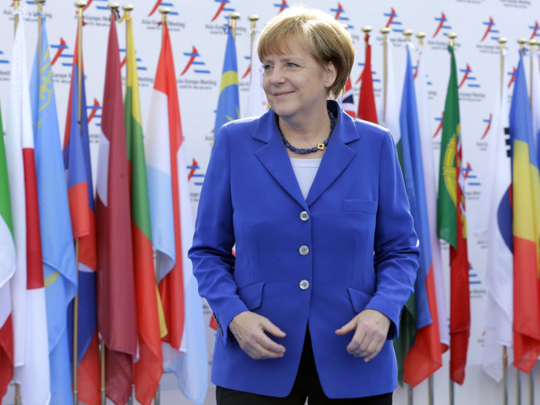
I am a fan, as a number of my columns attest, of Germany’s worker empowerment. By requiring corporations to divide their boards evenly between worker and management representatives and mandating that employers meet regularly with their employees to discuss and resolve company concerns, Germany has retained a high-end manufacturing sector that has enabled the nation to prosper while every other advanced economy has suffered hard times.
Through a government programme that provided firms with the funds to keep workers employed part-time, but at near full-time pay during the 2008-2009 economic shocks, workers stayed on the job and continued to upgrade their skills. Germany’s unemployment rate fell throughout the Great Recession and today stands at a mere 4.9 per cent. At a time when economic inequality is soaring throughout both advanced and developing economies, the superiority of Germany’s stakeholder version of capitalism — in which companies prioritise workers as well as owners — over the model that almost exclusively benefits shareholders, is obvious.
However, I am no fan of Germany’s macroeconomics, which are more destructive and dangerous than those of any other nation. By using its power as the dominant nation in the European Union (EU) to impose austerity on the struggling economies of Southern Europe, Germany has condemned young people in Spain and Greece to unemployment rates in excess of 50 per cent, shaken the social fabric of every nation on the Mediterranean and contributed to the rise of such far-right parties as France’s National Front and Greece’s neo-Nazi Golden Dawn. Unlike other nations, Germany has not offshored its best industrial jobs, but it has relentlessly offshored to its southern neighbours conditions conducive to the rise of a xenophobic extremism that one would think Germany, of all nations, would not wish to nourish.
The challenges facing the nations of Mediterranean Europe are hard-wired into the structure of the EU, but Germany has made them incomparably worse. Just as the euro has enabled Germany to boost its exports by making them cheaper than they would be if the country had a currency that reflected the strength of its economy, it has also overpriced exports from the nations of Southern Europe, which cannot devalue their currencies to reflect their economic weakness. Having forfeited the ability to adjust their monetary policy to boost their economies, the Mediterranean nations have also been blocked from stimulating their economies fiscally by the EU’s prohibition of budget deficits that exceed 3 per cent of the nations’ gross domestic products. Historically, those budget limits have been amended or waived during downturns, but German Chancellor Angela Merkel has continually insisted that the union impose austerity on nations whose economies required the very opposite: Public works projects to boost employment and consumption, not to mention political stability.
Now, the dummkopf fiscal policies of Merkel’s government have begun to threaten even the German economy. Manufacturers need customers, exporters need the nations that import their goods to be solvent, and Germany — the world’s most successful exporter — is finally running out of neighbours who can buy what it produces. German exports fell by almost 6 per cent in August, and its industrial production fell by 4 per cent. Though Germany has been experiencing unprecedented prosperity, Merkel has also reduced domestic public investment, much to the dismay of German business leaders who complain of decaying roads and rails. Her commitment to austerity at home as well as abroad now adds to the threats to the German economy.
Europe’s two dominant Mediterranean nations, France and Italy, both have new prime ministers bent on reforming their nations’ economies in ways that Merkel volubly supports. However, unemployment remains in double digits in both nations, and the prime ministers argue that such reforms cannot be readily accomplished under budgetary constraints that will keep unemployment high, or even raise it. Merkel dismisses such concerns, persisting in prescribing austerity as some kind of mystic panacea.
It is an appalling prescription — something that any student of German history should easily grasp. At the conclusion of First World War, the Versailles Treaty inflicted on Germany’s first democratic government, the Weimar Republic, a level of reparations and austerity that rendered it incapable of dealing with the Great Depression and contributed greatly to the Nazis’ rise to power. By enforcing austerity on Mediterranean nations with depression-level unemployment, Merkel has become a latter-day Clemenceau, imposing a neo-Versailles that weakens support for mainstream democratic parties and politics in those countries and fosters a climate where scapegoating and bigotry thrive. That is a hell of a legacy for a chancellor of Germany.
— Washington Post
Harold Meyerson is Editor at Large of the American Prospect.








